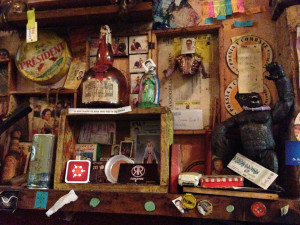 My husband and I enter a taxi in Mexico City and reach for the seatbelts. The taxi driver tells us that they are not available. Living in the US, we are extremely self-conscious about driving cars and bikes and attending to safety. We start digging underneath the seat to find the seatbelts.
My husband and I enter a taxi in Mexico City and reach for the seatbelts. The taxi driver tells us that they are not available. Living in the US, we are extremely self-conscious about driving cars and bikes and attending to safety. We start digging underneath the seat to find the seatbelts.
The taxi driver became irritated as we tried to pull the seatbelts up.
– If you damage my seat, you will pay for a new one!
We were relieved to find the seatbelts before having to ask him to stop the car and add another layer of stress to the situation. Nevertheless, there was tension in the air and we all endured an awkward few moments.
My husband broke the silence to talk about his fear of getting hurt and arriving home to his daughter with a serious injury. That brief moment of vulnerability and heart to heart connection was enough to create a bridge in the communication gap. The driver softened and opened up. He had kids too.
The taxi driver told us the story of his illegal and dangerous border crossing to the US years ago. He also feared to be seriously injured and not being able to get back to his children. Our shared experiences as parents brought us closer. He talked about working hard in the US and how he was able to buy the taxi and build a new life with the money he saved. The taxi became more than an object. It is a symbol for all the suffering he endured and the financial success he achieved while abroad. It is his source of income in Mexico, which allows him to be closer to his family. The car must be kept from damage at all costs! Then, he said “I’m sorry for overacting.” The conversation from that point on was filled with mutual understanding.
We left the taxi, shook hands with him, and were grateful to have gained a deeper perspective on the situation. We appreciated the opportunity to briefly put ourselves in that man’s shoes, to “wear his skin” and see his reality. It would have been too easy to default to quickly labeling the encounter as Mexican-American cultural differences.
While facing intercultural encounters it is always helpful to ask yourself: Are these personal values? Are these cultural values? Are these universal values? This is helpful, and regarding what you find, there is always the human bridge between you and the other person. Sometimes, we just need to stay long enough with a situation, and go through its awkwardness, to find commonalities. Then, an open mind and heart take you further on the intercultural path.
